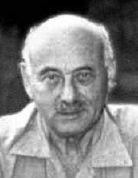

Bernhard Neumann attended school in Berlin at the Herderschule before entering the University of Freiburg to study mathematics in 1928. He studied for his doctorate at the University of Berlin. There he was influenced by an impressive collection of teachers including Schmidt, Robert Remak and Schur. There he met his wife Hanna, also a mathematician. Neumann was awarded his doctorate by the University of Berlin in 1932. When Hitler came to power in 1933, life in Germany became very hard for those of Jewish origin, and Neumann emigrated to England. In England he studied at the University of Cambridge, receiving a Ph.D. from Cambridge in 1935.
Even a mathematician as outstanding as Neumann was not guaranteed a lecturing post at that time and he spent 2 years unemployed before being appointed
to an assistant lectureship in Cardiff in 1937. In 1940 he joined the Pioneer Corps, then the Royal Artillery, and lastly the Intelligence Corps for the duration of the war. After
the war ended, Neumann searched for an academic appointment again, and this time was appointed a lecturer at Hull in 1946. The Neumanns were fortunate in
that Hanna Neumann was soon able to join him on the staff as an assistant lecturer.
In 1948, Neumann was appointed to the University of Manchester. In1961, Hanna was Neumann accepted an offer from the Australian National University of a professorship and the head of the mathematics department at the Institute of Advanced Studies. He retired in 1974.
Neumann is one of the leading figures in group theory who has influenced the direction of the subject in numerous ways. While still in Berlin, he published
his first group theory paper on the automorphism group of a free group. However his doctoral thesis at Cambridge introduced a new major area into group
theory research. In his thesis he initiated the study of varieties of groups, that is classes of groups defined which are by a collection of laws which must hold
when any group elements are substituted into them.
Neumann made many contributions over many years to the finite basis problem, "Can each variety be defined by a finite set of laws?". The answer to the problem was not given until 1969 when Ol'sanskii proved that the problem had a negative answer.
Bernhard Neumann's contribution to mathematics goes far beyond his leadership in research. He always had a very deep appreciation of the need to serve the mathematical community in other ways. He was a member of the Council of the London Mathematical Society between 1954 and 1961, and its Vice-President between 1957 and 1959. He served the Australian Mathematical Society as Vice-President on a number of occasions and was President during 1966-68. Neumann worked to set up the Bulletin of the Australian Mathematical Society and was editor for 10 years after it was founded in 1969. He played a crucial role in setting up the
Australian Association of Mathematics Teachers and the New Zealand Mathematical Society.
Many honours have been awarded to Neumann and continue to be awarded. He was awarded the Wiskundig Genootschap te Amsterdam Prize in 1949 and the
Adams Prize from the University of Cambridge. He was elected a Fellow of the Royal Society in 1959 and a Fellow of the Australian Academy of Science in 1963.